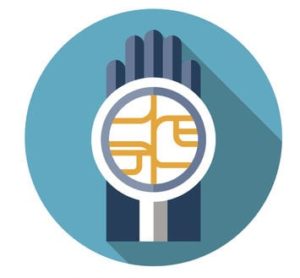“In smart city applications, such biometric scans would be linked to distributed ledger systems to deliver immutable audit trails, with the IOTA Foundation highlighting applications in data centers, airports, and stadiums.”
A Berlin-based not-for-profit focused on the promotion of blockchain technology is exploring the use of palm vein biometrics for authentication of individuals in Smart Cities.
Called the IOTA Foundation, the organization has just announced “IAMPASS”, a Proof of Concept system designed to scan the vascular structure inside a given user’s palm. In smart city applications, such biometric scans would be linked to distributed ledger systems to deliver immutable audit trails, with the IOTA Foundation highlighting applications in data centers, airports, and stadiums.
In a statement, IOTA Foundation co-chair Dominik Schiener emphasized the great potential of biometric authentication to facilitate the rise of blockchain more broadly. “With the maturation of identity solutions like these, we will see the IOTA ecosystem providing a key technical puzzle piece for the adoption of distributed ledgers,” he said.
While palm vein biometrics is not nearly as popular a modality as fingerprint scanning and facial recognition, with the latter in particular being favored in a number of large-scale government projects, Fujitsu has also been promoting this technology in Japan, particularly with respect to biometric access control and payment systems; and the technology is notable for its resistance to spoofing attempts. So the IOTA Foundation’s IAMPASS solution could prove appealing to government authorities harboring security concerns about biometric smart city technologies.
–
October 15, 2018 – by Alex Perala






Follow Us